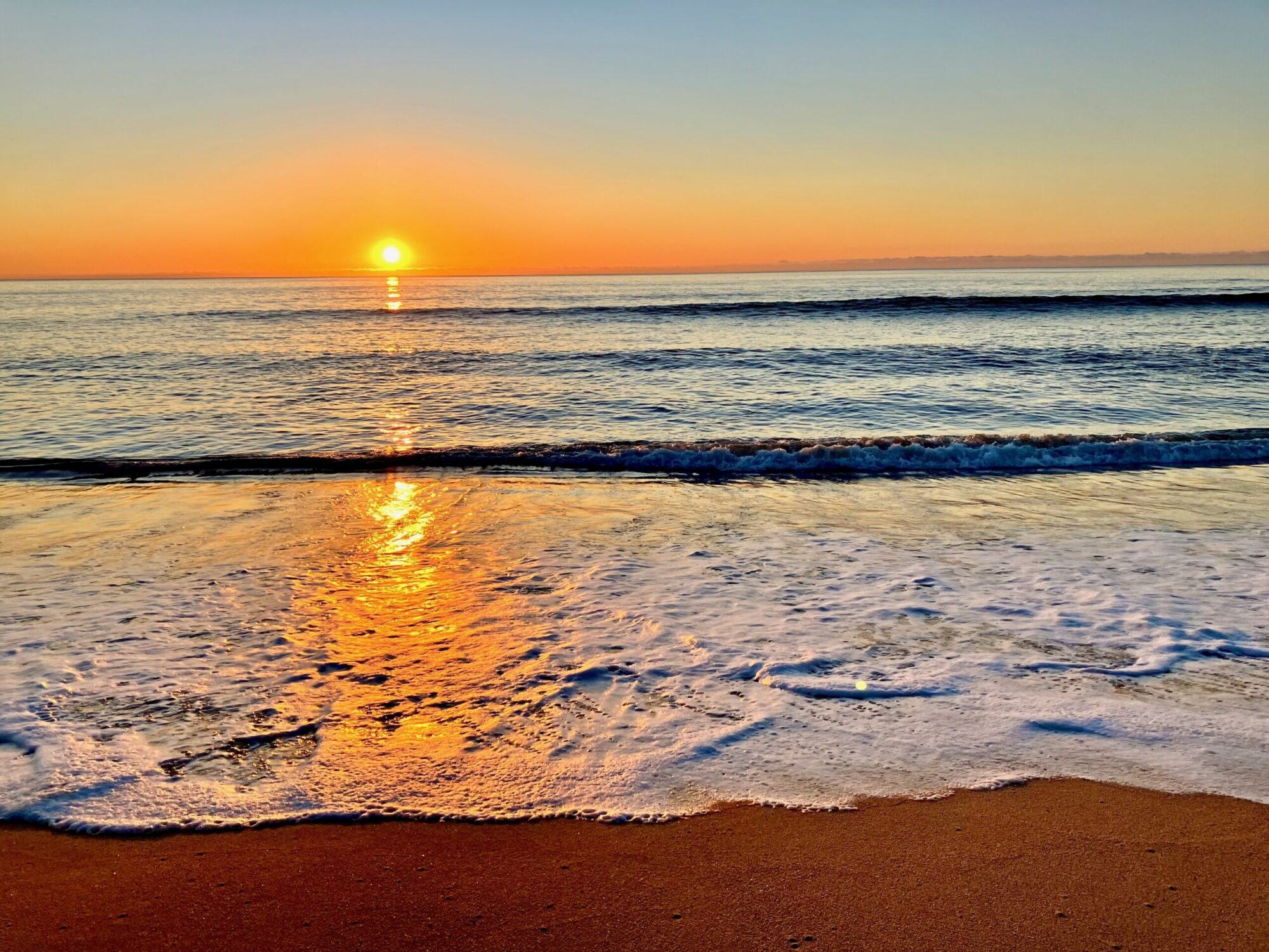Believing that a trip to Costco in Cabo San Lucas will net us the prescription Greg needs, we head south. In 45 minutes we can be there. Driving to Cabo is more scenic than the trip to La Paz. Quicker too. Plus I can always find something for our larder at Costco, so I welcome the diversion.

You can see the arch from Costco.
Speeding along the highway, Greg is distracted by the ocean waves. Surfers cannot be within sight of the ocean without checking out the surf. This always drives me crazy, but he assures me once more that he’s paying enough attention to his driving task. I’m never fully confident, and ask if he wants me to drive. “No, that’s okay.” I know what he’s thinking: I drive too slowly.
Antibiotics in hand, (whew!) we settle into an almost normal rhythm for the next two weeks while he takes his medicine. After a week, I look inside his mouth and see they are working. The pustules are lessening and the redness is fading. Even though Dr. Angulo had wanted Greg to see another specialist, Greg believes it is more prudent to kill off the bacterial infection first, so we postpone scheduling that appointment.
Back to St. Jude’s for an exam after the series of antibiotics is complete, and the doc there does another swab for a culture to be certain the infection isn’t lingering. It’s well into September now, and the continuing heat and humidity are getting to us. Greg hasn’t been in the water surfing for about a month. This absence from his favorite pastime isn’t helping his attitude.
When the culture comes back with good news, it seems odd that the doctor is hesitant. He wants Greg to see the ear, nose, and throat specialist that comes to St. Jude’s from Cabo. He wants this doctor to examine Greg’s throat for some reason he isn’t sharing with us. It does seem like a good idea though, as Greg has been complaining that it’s getting somewhat uncomfortable to swallow.
As this specialist lives near Todos Santos, we are assured they will call us when the doctor can examine him. A few days later we get the call. “Come in right now. The doctor is here in the clinic.” There is a fluttering in my stomach. I’m not sure why, but something seems “off” to me. We thought they would make an appointment for a future time, but instead we hurry to town to see yet another doctor.
This new doctor has the look of a competent professional with a special lamp for seeing into Greg’s throat. We have come to this appointment armed with all the previous test results and after his initial look into Greg’s mouth, he flips through all the reports. He doesn’t speak English, so there is another doctor with us who does, as well as the clinic administrator and the doctor who wanted Greg to come for this visit. There is much Spanish conversation going on between all these people. We aren’t catching much of it.
The doctor looks back into Greg’s throat with his powerful light; he’s doing some probing. Suddenly, with a puzzled expression, he turns to the others and asks (in Spanish), “Why isn’t anybody talking about the tumor on his tonsil?”
With wide eyes and a curious expression, the administrator asks, “Has anyone said anything about a tumor on your tonsil? There isn’t a mention of it in any of this paperwork you have.”
We look at each other. I feel as if all the blood has drained from my body. Greg has a tumor on his tonsil? What? This explains why he has been having a bit of trouble swallowing. Incredulous, we look back at the four of them.
The tumor is large. Greg will need a lot of tests. There are places they can send him for tests, but not all in one location. They can send us to Cabo, and some places have other appropriate testing apparatus in La Paz. Others may be as far away as Guadalajara and Mexico City. “Do you have medical insurance in the US?”
The answers we give to the doctor’s questions make it clear that Greg should go north for testing and inevitable treatment of some kind. Greg has insurance coverage in the state of Washington. We need to get him on a plane.
As we leave the exam room, the doctor puts his hand on Greg’s shoulder, looks him in the eyes and says, in English, “I’m sorry.” Neither of us will ever forget those two words and the pitiful expression we saw on his face.

Thank you for sharing! I relate to so many of the same feeling?The horror realizing it came to your loved one, never goes away???
You are so right. Bless your heart, Martine. Hugs.